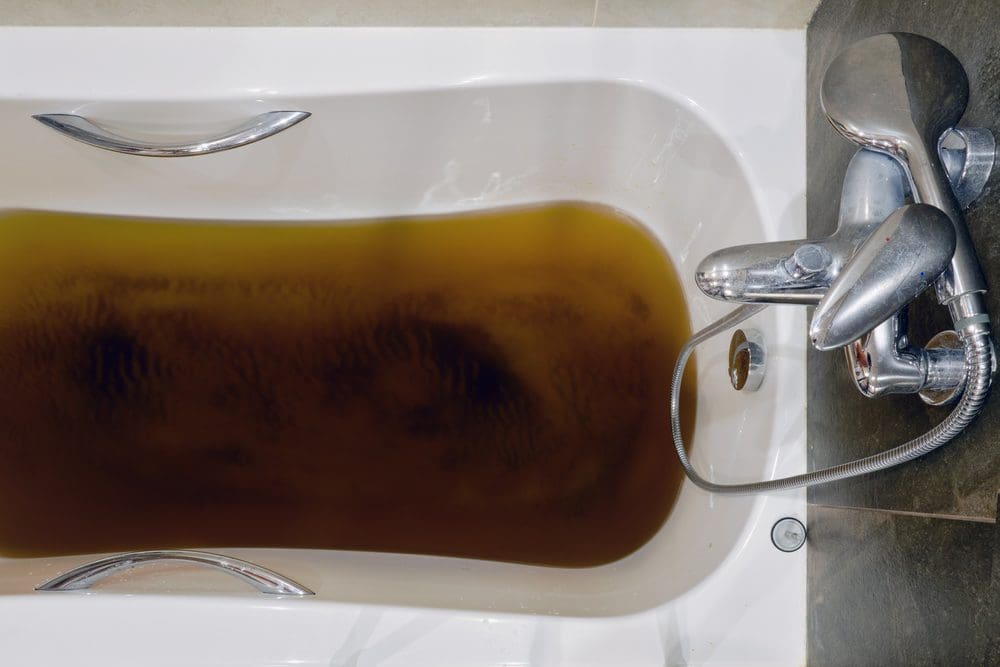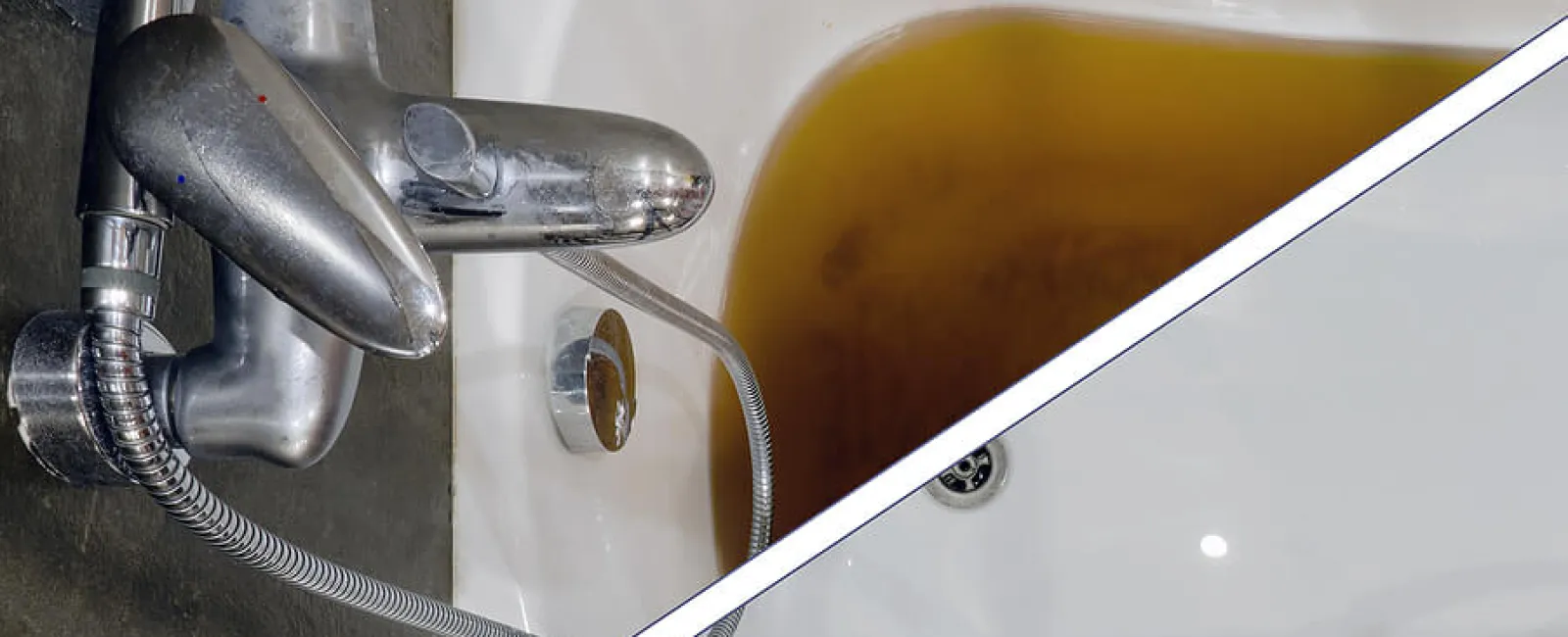Just about every person seems to have their own assumption involving Why is Sewage Backing Up Into My Bathtub?.

Sewer back-up in the bathtub can be a traumatic and unsanitary trouble for any kind of homeowner. Not just is it inconvenient, yet it additionally presents serious wellness risks and shows underlying issues with the plumbing system. Recognizing why sewer is showing up with the bathtub is essential for taking ideal action to resolve the problem effectively.
Introduction to the Concern
Typical Factors for Sewage Back-up
Obstructions in the Sewer Line
Among the most usual reasons for sewage backup is an obstruction in the sewer line. This can take place due to the buildup of debris, grease, or foreign things in the pipelines, protecting against proper flow and triggering sewage to support into your bathtub.
Tree Root Intrusion
Tree origins seeking wetness and nutrients can penetrate sewer lines with small splits or joints. In time, these roots can grow and expand, creating considerable damages to the pipes and resulting in sewer back-up issues.
Recognizing the Issue
When sewer draws back up right into the bathtub, it's a clear indication of an issue with the water drainage system. The wastewater that should be moving far from your home is rather discovering its back into your home, which can bring about considerable damages and carcinogen.
Potential Reasons
Numerous variables can contribute to sewage back-up in the tub. From clogs in the drain line to concerns with the plumbing infrastructure, identifying the source is vital for locating a service.
Aging Facilities
Older homes might have outdated plumbing systems that are a lot more vulnerable to corrosion, splits, and damage. As pipelines age, they end up being more vulnerable to leakages and blockages, enhancing the likelihood of sewer backup cases.
Heavy Rainfall or Flooding
Throughout durations of heavy rainfall or flooding, the sewer system may come to be overloaded with excess water, creating back-ups and overflows. This can lead to sewage backing up into bathtubs and other fixtures inside the home.
Indications of Sewer Back-up
Foul Odors
Undesirable odors emanating from drains pipes or fixtures, particularly in the bathroom, may show sewage back-up problems. These odors are typically solid and consistent, signaling a trouble that requires instant attention.
Slow Draining Fixtures
Bathtubs, sinks, and toilets that drain pipes gradually or not in any way could be experiencing sewer backup. If several components are influenced at the same time, it's likely that the problem stems from an usual factor, such as the major sewage system line.
Gurgling Sounds
Odd gurgling or gurgling sounds originating from drains pipes when water is running somewhere else in your house are a sign of air caught in the plumbing system. This air build-up can result from sewage backup and should be explored without delay.
Health And Wellness Risks Related To Sewage Backup
Contamination of Water Supply
Sewage backup can infect the water in your house, posturing a significant health risk to you and your family members. Direct exposure to contaminated water can lead to intestinal issues, skin infections, and various other ailments.
Mold Growth
Wetness from sewer back-up can develop ideal problems for mold growth in your house. Mold and mildew spores can exacerbate respiratory system problems and trigger allergic reactions in delicate people, making timely cleaning crucial.
Spread of Disease
Sewage consists of harmful bacteria, viruses, and bloodsuckers that can trigger a variety of diseases, consisting of liver disease, cholera, and gastroenteritis. Coming into contact with sewer or infected surface areas puts you at risk of infection.
Cleaning Up After Sewer Backup
Disinfection Procedures
Thoroughly sanitize and sterilize impacted areas after sewer backup to get rid of hazardous bacteria and stop mold and mildew growth. Usage proper cleaning items and safety equipment to make certain risk-free and efficient clean-up.
Remediation of Impacted Areas
Fix any kind of damage to flooring, walls, or components brought on by sewer backup. Depending on the extent of the damage, you may require to change carpeting, drywall, or various other products to restore your home to its pre-loss problem.
Immediate Actions to Take
Turning Off Water System
In case of sewer back-up, it's necessary to shut off the water to prevent more contamination and damage. Find the main water shutoff valve in your house and shut it off up until the problem can be resolved.
Contacting a Specialist Plumber
Handling sewer backup is not a DIY job. Get in touch with a certified plumber with experience in taking care of sewage-related problems to examine the circumstance and execute required repair work or cleanups.
Preventing Contact with Polluted Water
Until the sewer backup is solved, avoid contact with polluted water to stop the spread of bacteria and virus. Put on protective gear if you have to remain in the damaged area and wash your hands completely later.
Safety nets
Normal Upkeep of Sewer Lines
Arrange routine assessments and maintenance of your sewage system lines to recognize and attend to potential problems prior to they intensify right into major issues. This can consist of cleaning debris, checking for tree origin breach, and repairing any kind of broken pipelines.
Mounting Bayou Shutoffs
Take into consideration installing backwater shutoffs in your plumbing system to avoid sewage from receding into your home during periods of heavy rainfall or flooding. These valves instantly close when water starts backing up, shielding your residential property from contamination.
Appropriate Disposal of Family Waste
Stay clear of purging anything apart from toilet paper and human waste down the bathroom to avoid clogs and blockages in the drain line. Dispose of oil, oil, and other house chemicals appropriately to decrease the threat of plumbing issues.
Why Is Water Backing Up in My Bathtub When I Flush My Toilet?
What to do about a sewer line clog
First, don’t bother with plunging. No amount of plunging will dislodge the clog in a sewer line. The clog is too far away. Plungers are for clogs in the toilet itself, not the sewer line. Plus, the most likely causes of a sewer clog are:
Tree roots Flushed toys or feminine products Grease buildup Those items don’t move easily. And in the case of tree roots, the roots need to be cut out of the pipe and the pipe will need to be repaired.
You’ll need a closet auger. A closet auger is a type of plumber’s snake with a protective cover to keep from scratching the delicate porcelain toilet. If the clog is further down, you may need to remove the toilet or use one of your cleanouts to get to the clog.
We also recommend doing a video inspection of the drain to ensure that the cause of the clog has been completely removed. Otherwise, you could have the same problem again in a few days or weeks.
https://mspplumbingheatingair.com/blog/why-is-water-backing-up-in-my-bathtub-when-i-flush-my-toilet

I discovered that blog entry on What to Do if Sewage Starts Coming Up Through Your Bathtub when surfing the web. Are you aware of anybody else who is intrigued by the topic? Please feel free to promote it. We enjoy your readership.
Click Here